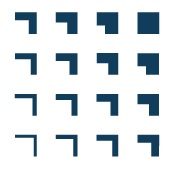
Institute for Technology & Innovation Management
Hamburg University of Technology
Am Schwarzenberg-Campus 4, D-21073 Hamburg, Germany

 |
Institute for Technology & Innovation Management |
 |
| TUHH › TIM › Global Innovation › Projects › Frugal Innovation › Project Acquisition |  Startseite Deutsch | Search | Publications Startseite Deutsch | Search | Publications |
|
Industry Project with Robert Bosch Automotive Steering GmbH on the Role of Frugal InnovationStandardizing Cost-to-Market activities in Project Acquisition for Enhancing Customer Performance[Current Situation] [Objectives] [Proposed Methodology] A project of:
Thesis work: Paramvir Singh Thesis supervision: Prof. Cornelius Herstatt, Dr. Rajnish Tiwari, Dipl.-Ing. oec. Thorsten Pieper, and Mr. Matthias Joos (Robert Bosch Automotive Steering GmbH) Start: Oct. 2015 Project status: Completed in April 2016. Keywords: Frugal Innovation; B2B Sales; Acquisition Process; Customer Performance; Customer Satisfaction; Customer Excellence, Product Cost Management, Target Costing
Robert Bosch Automotive Steering GmbH is a leading manufacturer of automotive steering systems to OEM’s. The sales acquisition phase has become a very challenging phase due to high market competition. The two most important factors in acquiring projects are: technology leadership and cost leadership. Currently, all Tier-1 automotive suppliers are offering more or less similar technology. Hence, meeting target product cost of customer has become the one of the most significant driver in acquiring projects. The Sales department is organized with respect to customers (key accounts). Sales team in each key account is facing persistent difficulties in Project acquisition process in terms of meeting customer target price. The acquisition process starts very early before receiving the RFQ. In this phase the Product and its technical specifications are conceptualized. Development and sales team are in continuous contact with the customer and there is potential for improvement in capturing customer demands in this phase. Detailed cost calculation is done after receipt of RFQ and then quotation is sent to the customer. In most cases, the first quotation does not meet target product cost of the customer. Consequently, iterative cost reduction activities have to be carried to meet customer expectations in the competitive market. This is resulting in inefficient customer performance which is adversely affecting relationship with the customer. In order to enhance customer performance, by meeting the target cost in early stages of quotation process and eliminating the redundant iterative costs down activities, a new department (Customer Performance) has been made in Robert Bosch Automotive Steering GmbH. This department is directly under the CEO Mr. Christian Sobottka. Environmental footprint is an indicator of the environmental impact resulted by consumption. In year 2010 the average environmental footprint per person in European Economy Area was double in comparison to the available biocapacity. Growing global trade and increasing import of final and intermediate goods is incrementally shifting the environmental impacts, caused by European consumption, beyond Europe (EEA 2012). Besides environmental issues, many citizens of the EU member countries are facing increasing risk of poverty or social exclusion due to material deprivation, as per data by Eurostat (also see Tiwari and Herstatt, 2013). Based on these factors, prospects of consumption suggest an increasing demand in future (voluntary or induced by regulatory measures) for sustainable, affordable and resource-efficient products in the European Economy Area. This research seeks to examine compatibility of frugal innovation as a countermeasure against planned obsolescence. The objective is to review literature on planned obsolescence and frugal innovation and their implication to societies, especially in the EU. We look into following questions:
Important notice: Research proposals containing project description generally depict initial ideas submitted by students in response to a call for project initiated by the RPGI team, an external enterprise or on their own. Even though the proposals are cross-checked and edited by the RPGI team before putting them in the public domain, no guarantees can be taken at this stage of the quality and/or other aspects of good academic practices. Their adherence is, however, duly examined when students submit their reports, and prior to any publication of the report. |
||||||||||||||||||||||||||||||||||||
| Disclaimer / Imprint & Privacy Policy | Webmaster, 09.6.2017 |